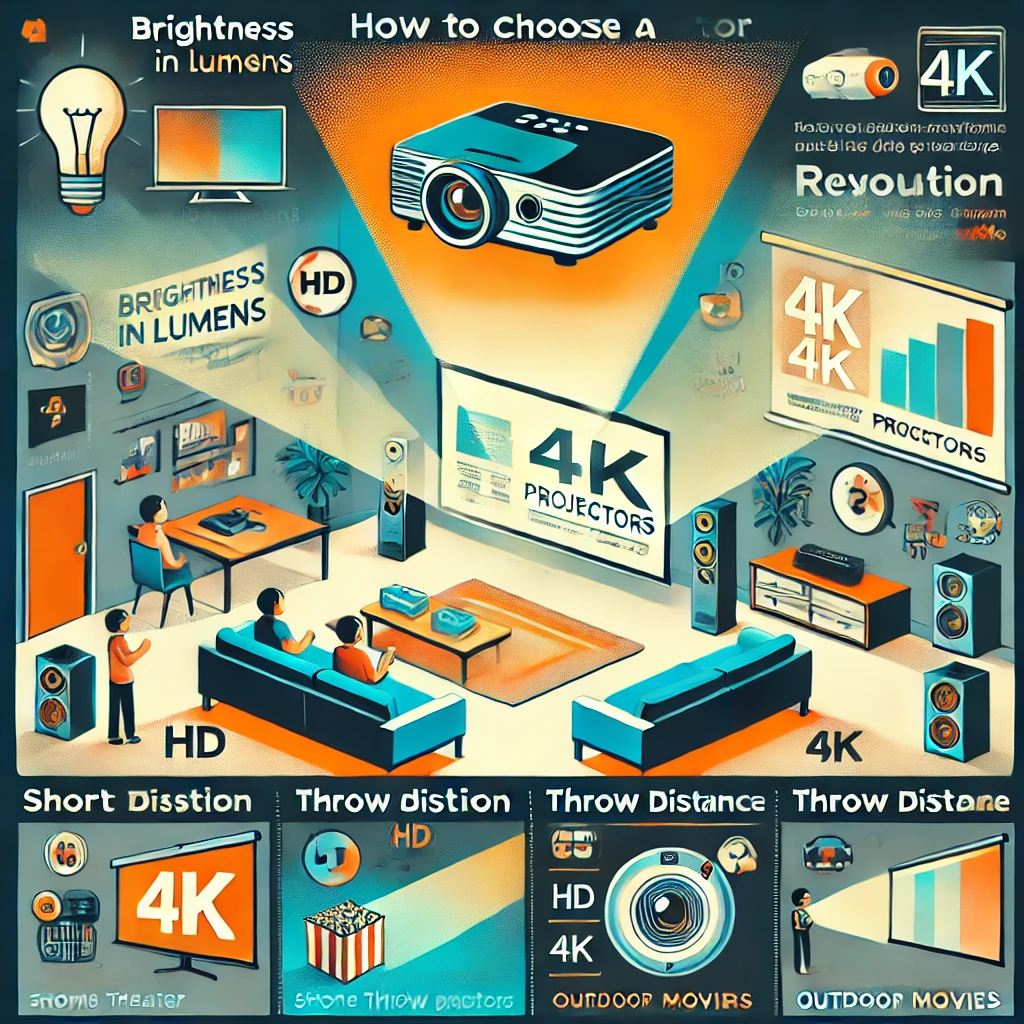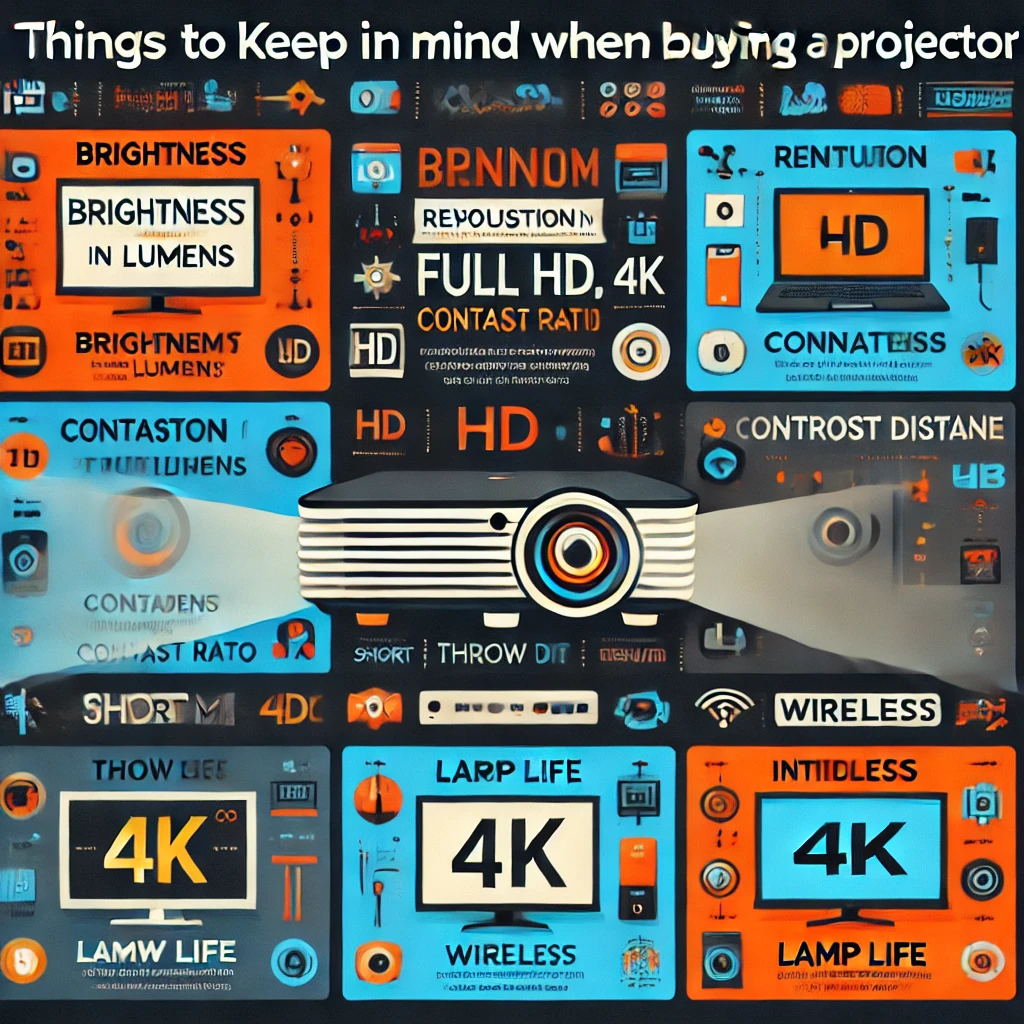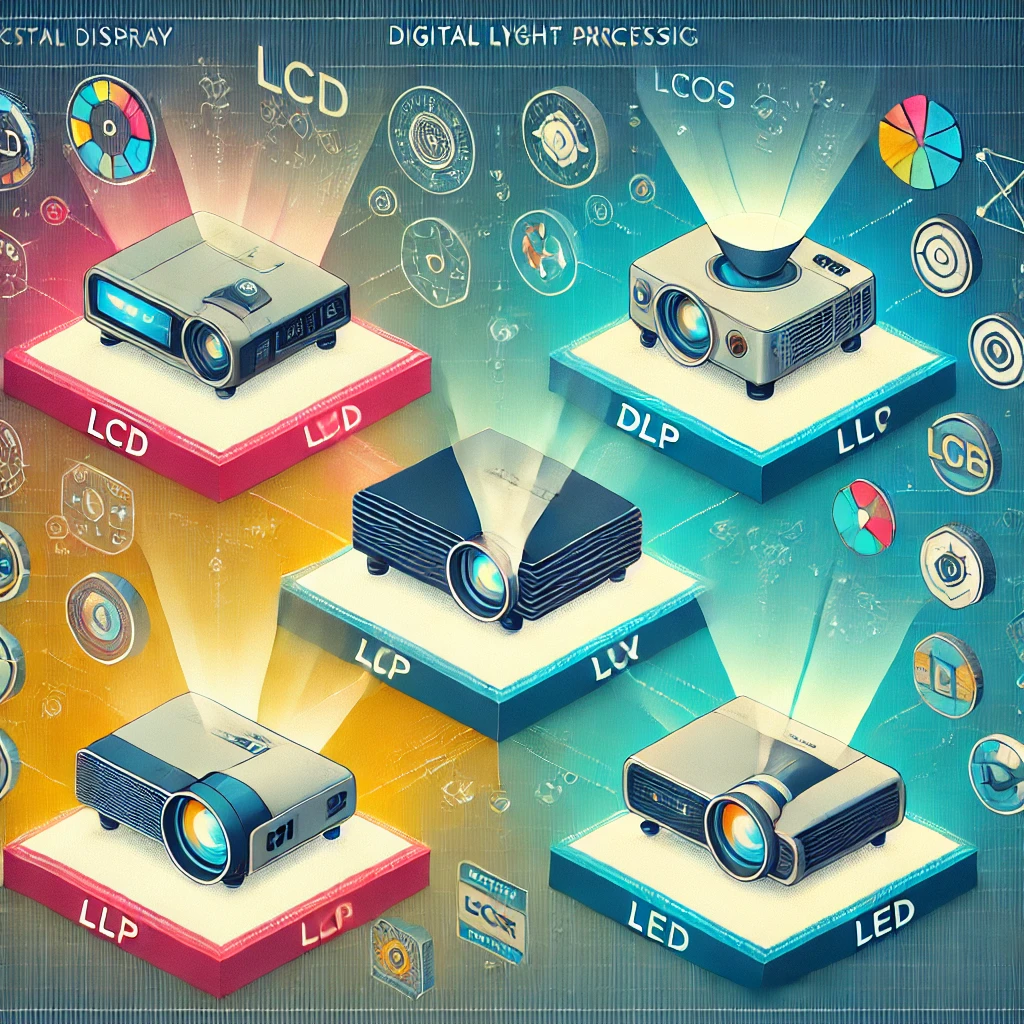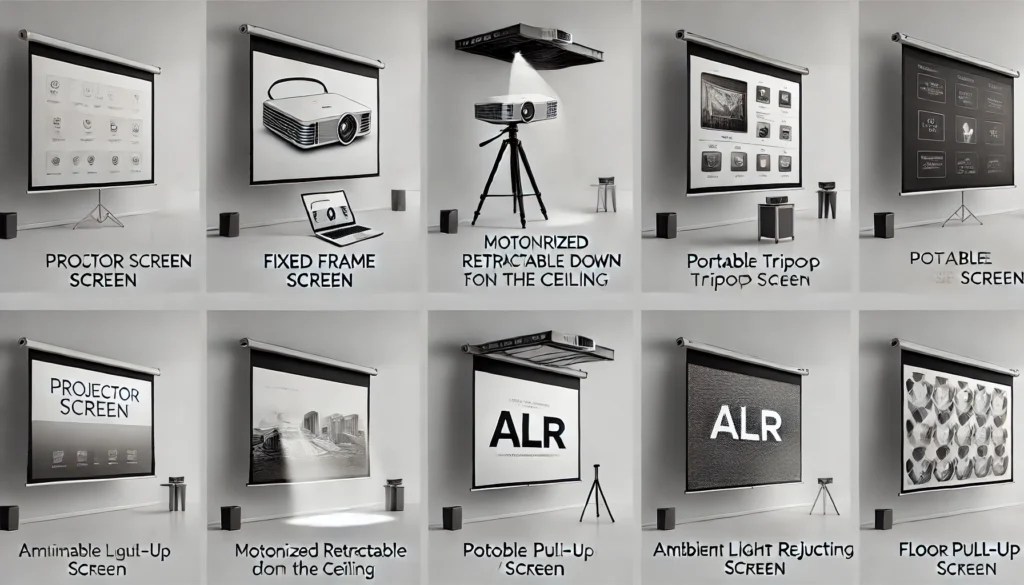When buying a projector, consider key factors like resolution, brightness, throw distance, and connectivity. Higher resolutions like 1080p or 4K are ideal for detailed visuals, especially for movies or presentations.
Brightness, measured in lumens, affects image clarity in different lighting; 2000-3000 lumens are good for dim rooms, while brighter spaces may need 3000+. For throw distance, short-throw projectors work in smaller spaces, while standard throw models are best for larger rooms.
Also, ensure it has the right connectivity, like HDMI, USB, or wireless options, to match your devices. Finally, assess the lamp’s life and ease of maintenance for long-term use.
What Do You Plan to Use the Projector for?
Planning on how you will use your projector can save you time and money. Here are some common uses:
- Home Theater: Ideal for movie enthusiasts who want an immersive experience.
- Business Presentations: Perfect for professionals needing sharp images and easy connectivity.
- Gaming Sessions: Great for gamers who require minimal input lag and vibrant visuals.
- Outdoor Movie Nights: Suited for those who enjoy cinema under the stars.
Each of these uses requires different specifications, and identifying your primary use will guide your purchase.
Buyers’ Guide: Where to Buy a Projector
Purchasing a projector involves both research and exploration of various buying avenues. Here’s where you can start:
- Online Retailers: Websites like Amazon and Best Buy offer a range of options, often with user reviews and competitive pricing.
- Specialty Electronics Stores: These provide expert advice and hands-on demos, helping you make an informed choice.
- Local Classifieds: Sites like Craigslist or Facebook Marketplace may have used projectors at bargain prices, though caution is advised.
Each purchasing avenue has its pros and cons, but exploring a mix of them will widen your options and help you find the best deal.
How Do I Know Which Projector to Buy?
Choosing the right projector involves more than picking the one with the highest specs. Here’s what to consider:

Recently Post: How to Use DeX?
- Resolution:
Opt for at least 1080p resolution for crisp and clear images. 4K projectors are ideal for high-definition needs.
- Brightness:
Measured in lumens, the brightness you need depends on your environment. Brighter rooms require higher lumens.
- Contrast Ratio:
A higher contrast ratio will provide deeper blacks and more vibrant images.
Reflect on these aspects while also considering your budget and the projector’s intended use. A little research can go a long way in ensuring satisfaction with your purchase.
Things to Keep in Mind When Buying a Projector
Before finalizing your purchase, here are some factors to consider:

- Portability:
If you need to move the projector often, choose a lightweight model.
- Connectivity Options:
Ensure compatibility with your devices through HDMI, USB, or wireless connections.
- Lamp Life:
A longer lamp life means fewer replacements, saving costs in the long run.
By considering these points, you can avoid common purchasing pitfalls and select a projector that meets your needs.
Types of Projector Display Technologies
Projectors come with various display technologies, each offering unique benefits:

- DLP (Digital Light Processing)
Known for smooth motion and vibrant colors, ideal for movies.
- LCD (Liquid Crystal Display)
Offers sharp images and color accuracy, great for presentations.
- LCoS (Liquid Crystal on Silicon)
A blend of DLP and LCD, providing excellent image quality but often at a higher price.
Understanding these technologies will equip you to choose a projector that aligns with your quality expectations and budget.
What Features Are Important in Projectors?
When selecting a projector, prioritize these features:
- Keystone Correction:
Allows for adjusting image shape for distorted projections.
- Zoom Range:
Provides flexibility in image size without moving the projector.
- 3D Capabilities:
Offers an immersive experience for compatible content.
These features enhance usability and viewing experience, making them integral to your decision-making process.
Types of Projector Screens
Complementing your projector with the right screen enhances viewing quality. Consider these types:

- Fixed Frame Screens:
Provide a permanent, tensioned surface for stable image quality.
- Pull-Down Screens:
Offer flexibility for temporary setups.
- Portable Screens:
Ideal for presentations on the go.
Choosing the right screen type will depend on your space, usage frequency, and mobility needs.
Suggested Post: How to Connect Airpods Pro to Dell Laptop?
Conclusion
Choosing a projector depends on your specific needs, from the resolution for high-quality visuals to brightness for different lighting environments.
By considering resolution, brightness, contrast, throw distance, connectivity, and other features, you’ll find a projector that meets your requirements and enhances your viewing experience.
Make sure to also account for your budget, as prices can vary widely depending on the specifications.
Faqs About How to buy a Projector
Have you got questions? We’ve got answers. Here are some frequently asked questions about How to buy a Projector.
What do I need to know when buying a projector?
Consider resolution, brightness (lumens), and connectivity options for clear images and compatibility. Also, check throw distance for room fit and lamp life for durability.
How do I choose the best projector?
Choose the best projector by focusing on resolution, brightness, and throw distance to match your room size and lighting. Also, ensure it has compatible connectivity and a durable lamp life for long-term use.
What is the best display type for a projector?
The best display types for projectors are LCD for bright, sharp images in ambient light and DLP for smoother motion in darker rooms. Laser projectors offer vibrant colors, longer life, and low maintenance.
Do I need a 4K screen for a projector?
You don’t need a 4K screen for a projector, but it enhances detail and clarity if your projector supports 4K resolution. For smaller screens or basic viewing, a 1080p screen often works well.
Which is better: LED or LCD projector?
LED projectors are generally more energy-efficient with longer lamp life, while LCD projectors offer brighter images and better color accuracy in well-lit rooms. Your choice depends on brightness needs and desired maintenance levels.

5 thoughts on “How to buy a Projector (Buying Guide) Free – Techy Solz”